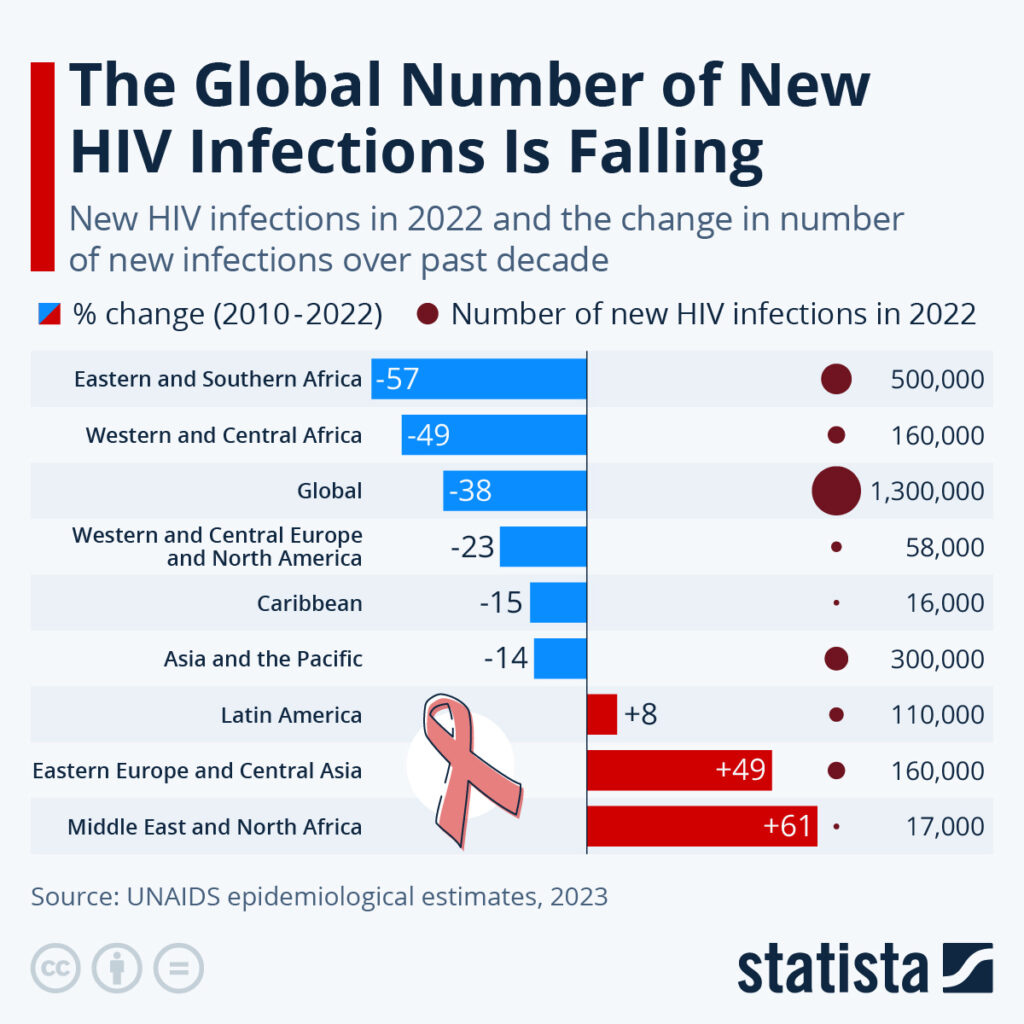
9 Sept. 2023. The number of new infections from the human immunodeficiency virus or HIV declined worldwide last year and over the past decade, with the sharpest declines in sub-Saharan Africa. A report from the United Nations agency UNAIDS, issued in July, provides the data compiled this week in chart form by the business research company Statista.
HIV attacks lymphocytes or white blood cells in the immune system, thus weakening the body’s natural defenses against other infectious diseases, including tuberculosis. Infections from HIV can progress to acquired immunodeficiency syndrome or AIDS, a deadly condition. People with HIV can spread the virus through exchanges of bodily fluids, such as semen or blood, through sex, sharing syringes by drug users, or from mother to child in the womb.
Worldwide, an estimated 1.3 million new HIV cases were reported in 2022, of which about 660,000 or half occurred in eastern, southern, central, or western Africa. Yet, as the chart shows, those regions recorded the sharpest declines in new infections since 2010, from 49 percent in western and central Africa to 57 percent in eastern and southern Africa. Worldwide, HIV infections fell by 38 percent since 2010, according to UNAIDS. At the same time, however, HIV cases rose by 61 percent since 2010 in the Middle East and northern Africa, while infections in eastern Europe and Central Asia gained nearly half (49%). Together those regions account for an estimated 177,000 cases in 2022.
Some of the declines in HIV infections can be traced to the U.S. President’s Emergency Plan for AIDS Relief, or PEPFAR, a program started under the George W. Bush administration that provides HIV medications such as antiretroviral drugs to not-for-profit organizations worldwide, as well as support for local health care systems to prevent HIV and AIDS. As reported today by Associated Press, however, some Republican members of Congress threaten to withhold further funds from PEPFAR due to accusations of support for abortions by grantees.
More from Science & Enterprise:
- One-Time Crispr HIV Therapy Given Fast-Track Status
- Infographic – Higher HIV Burden for Women, Girls in Africa
- Trial Shows Antibody Neutralizes, Reduces HIV Virus
We designed Science & Enterprise for busy readers including investors, researchers, entrepreneurs, and students. Except for a narrow cookies and privacy strip for first-time visitors, we have no pop-ups blocking the entire page, nor distracting animated GIF graphics. If you want to subscribe for daily email alerts, you can do that here, or find the link in the upper left-hand corner of the desktop page. The site is free, with no paywall. But, of course, donations are gratefully accepted.
[wpedon id=”42724″ align=”center”]
* * *
